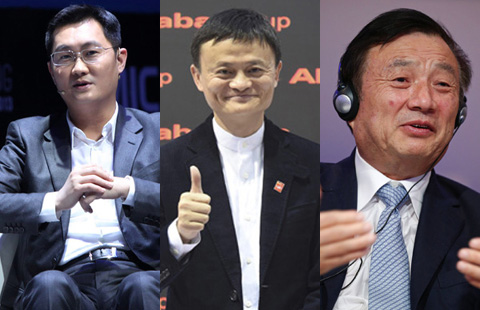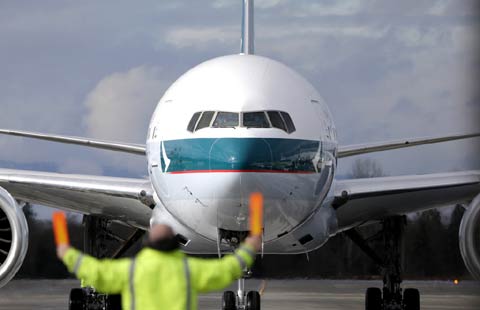Bull run in HK set to continue
By Xie Yu (China Daily) Updated: 2015-04-15 07:38"The southbound money we see now is mainly from mainland-based retail investors and hedge funds, while I believe 90 percent of the mutual funds have not taken actions yet," Lu said.
The benchmark Hang Seng Index retreated 1.62 percent to 27,561.49 points on Tuesday, ending its gaining streak since this month. Turnover shrank to HK$237.6 billion ($30.66 billion) from HK$ 263.6 billion on Monday.
On the other hand, the frenzy on the mainland's A-share market continued. The Shanghai Composite Index added 0.3 percent to a seven-year high of 4,135.57 at the close, while the CSI 300 Index advanced 0.4 percent.
Several analysts said they are receiving questions and calls from foreign fund managers, who were absolutely caught by surprise by the sudden surge of the Hong Kong market, and are considering whether to jump in.
For most of them the dilemma is the apprehension that a further surge of capital from the mainland, triggered by mutual funds, may push the benchmark even higher and make it difficult for them to join in.
More or less, it seems every one in the market is drawn into the big party, including local retail investors and foreign institutions, said Lu from UBS.
Most of the foreign firms cannot agree with the investment logic of mainland investors, who are simply buying whatever they like. Given that liquidity is flooding the market, no one wants to miss an opportunity to make money.
Pressured by the huge capital inflow to chase local stocks, the Hong Kong Monetary Authority has injected about HK$33.7 billion into the money market starting from last Thursday, to buy US dollars and weaken the local currency, so as to keep the peg to the US dollar.
Some people argue that with more mainland capital coming in, the market will see a sea change with A-share market investment styles and preferences set to influence trends.
"It seems at this point, it is still hard to persuade the foreign investors to buy small chips with above 30 times price-earning ratio. However, if turnover and valuation level keeps the current level for one or two months, foreign investors will have to change the valuation system entirely," said Leung from Haitong Securities.
- Chinese technology spurs Venezuela's economic development
- Chinese investments in Brazil now focused on infrastructure, energy
- Chinese household income continues to grow in Q1
- AIIB founding members rise to 57
- Chinese premier, Greek PM hold phone talks on cooperation in port project
- China plays crucial role in advancing South-South cooperation
- Asian business aviation show opens in Shanghai
- China's fixed asset investment up 13.5%

















